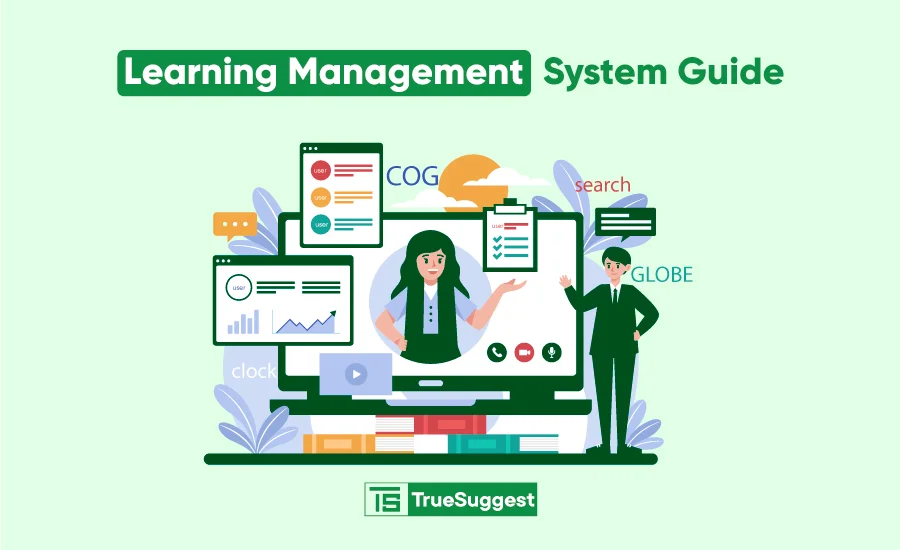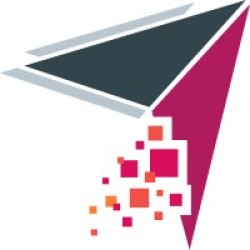What is an LMS? Necessity of LMS System?

What do you know about LMS? Or what is an LMS? LMS is a learning management system. It is a virtual education or learning software. A learning management system allows users to create, deliver, and report on training programs. Nowadays it’s an immeasurable necessity. It has been popular during the world pandemic in 2019. Most organizations take remote classes due to government restrictions. In that case, the use of LMS becomes higher. However, let’s go inside about LMS in detail.
What is an LMS?
LMS stands for learning management system. It is a virtual learning application for organizations. Those who are educational-based organizations, LMS is the first choice for them. It provides a smart platform for both educators and learners to interact, for content creation, distribution, communication, and tracking progress. Its demand is increasing due to some privileges, such as no need to go to the organization, any content or document that can be shared with others, remote education and training, and others.
What Is An LMS Platform Example?
There are different types of LMS platforms. They offer different types of privileges with attractive features. However, take a look at learning management system examples of software providers, features, and pricing.
Edutask LMS
Edutask learning management software. It is an academic software designed for educational purposes. It can help to create an online educational platform and educational environment.
Features
- Integration with Edutask app.
- User-friendly and easy to maintain.
- Dynamic management system.
- Scalable and versatile platform.
Pricing
$39
Necessity of Learning Management System
A Learning Management System (LMS) is essential for modern education and training. It streamlines administrative tasks such as enrollment, grading, and tracking progress, improving efficiency. An LMS enhances learner engagement through interactive tools and multimedia content, facilitating better communication and collaboration between instructors and students. So, let’s see at a glance the necessity of LMS.
- Track learner progress.
- Personalized learning.
- An LMS gives you valuable data.
- Demonstrate training impact.
- Reduce learning and development costs.
- Cost savings.
- Enroll learners.
- Ensure mandatory training is completed.
- Improve performance.
- Improved employee retention.
Types of Learning Management Systems
There are different types of learning management systems. That can be used for specific functions. So, let's see how many LMSs are there.
- Cloud-Based LMS.
- Self-Hosted LMS.
- Open-Source LMS.
- Corporate LMS.
- Academic LMS.
Cloud-Based LMS
Cloud-based LMS is hosted on the user's servers and accessed by Internet connections. This type of learning management system offers flexibility and gives access to learning materials from anywhere with an internet connection. It can handle a growing number of users and courses. It requires less IT maintenance compared to self-hosted solutions. TalentLMS, Docebo, LearnUpon LMS, and Moodle are cloud based LMS.
Self-Hosted LMS
A Self-Hosted LMS is installed and operated on the user's servers. It offers complete control over the system's customization, data, and security. This type of LMS is ideal for organizations with specific needs. It allows for extensive customization, integration with other software, and greater data privacy. However, it also demands significant IT infrastructure and maintenance efforts, such as regular updates, backups, and troubleshooting.
Open-Source LMS
An Open-Source LMS is freely available for anyone to use. Open-source means source code is available for anyone. This type of learning management system allows for significant customization to meet specific needs. It is often supported by a community of developers who contribute to its improvement and features. If you find a flexible and cost-saving LMS, use an open-source LMS. However, open-source LMS requires technical expertise for setup, customization, and maintenance.
Corporate LMS
A Corporate LMS is designed for employee training and development within businesses. It focuses on improving working skills, conducting training, and onboarding processes. Corporate learning management systems contain some essential features, such as course management, performance tracking, and integration with other HR systems. Corporate LMS aims to improve productivity and ensure employees stay updated with industry standards and company policies.
Academic LMS
The Academic Learning Management System is a crucial tool in modern academic settings. Academic LMS facilitates the management of educational courses and resources. It simplifies the creation of online classrooms and allows teachers to organize their teaching materials efficiently. Students can access these resources, engage in discussions, submit assignments, and receive feedback. It also helps guardians collaborate and increase learning opportunities for the students.
What Should Be The Best Features Of a Learning Management System?
There are different types of learning management software providers. Each provider designs their software like their own strategy. They also include features depending on their targeted fields such as academics, organizations, etc. However, before choosing this software focus on the features or key components of a learning management system.
Make sure all the features will be well suited for your operations. In that case, I have referred to some common and crucial features that may help you to choose the best learning management software for your further operations.
- Assessments and Learning Paths
- Certificates
- Course management.
- Notifications system.
- Reporting and analytics.
- System Integration.
- Security and Data tracking system.
- Intuitive user interface.
- Engaging user interface.
- Mobile learning and Personalization.
What Is The Main Purpose Of LMS?
There are different purposes of using LMS. The main purpose of a learning management system (LMS) is to optimize and enhance the learning process, creating ease for both instructors and students, enabling mobile and self-paced learning, monitoring and reporting student progress, and conserving valuable resources by eliminating manual learning.
Which Organization Needs a Learning Management System (LMS)?
The organizations may include corporations, educational institutions, non-profits, government agencies, schools, colleges, universities, and other professional associations. Any organization that requires structured training, development, or education for its employees, members, or students can use a Learning Management System (LMS).
What Is The Main Element Of LMS?
The main element of the learning management system is to create a “course library”, where trainers or teachers can create and add new courses. Another essential element is Course Management. It also involves the creation, organization, delivery, and administration of educational courses and training programs. However, other crucial elements make it more popular in the online platform.
Advantages and Disadvantages of a Learning Management System
Many organizations or academic institutions have been online-based. They have numerous privileges of offering online or remote learning or teaching systems. The learning management system has some disadvantages. However, let’s see some advantages and disadvantages of the learning management system.
Advantages of a Learning Management System (LMS)
- It is a better learning platform and increases overall functional progress.
- LMS provides anytime, anywhere access to courses and supports multiple devices.
- It reduces costs associated with traditional classroom training (travel, and accommodation).
- Ensures consistent training delivery across different locations and time zones with quality.
- Monitors learner progress, completion rates, and performance metrics.
- Encourages collaborative learning through discussion forums and social features.
- LMS can be integrated with other systems like HR software, CRM, and content libraries.
Disadvantages of a Learning Management System (LMS)
- It requires investment in setup, customization, and training.
- It may require ongoing maintenance and updates to ensure smooth operation.
- Administrators and instructors require training to utilize all features effectively.
- Creating high-quality, engaging content can be time-consuming and costly.
- Requires expertise in instructional design and multimedia production.
- LMS is not suitable for all types of training, especially those requiring hands-on practice.
Future Trends in LMS Systems
Technology is evolving arithmetically. Business needs to be maintained smartly, technically, and smoothly. In that case, there is no comparison with software or business management tools. LMS is a software that is used for educational and training purposes. LMS has been renowned since the 2019 pandemic. The world may face a horrible situation in the future. In that case, LMS usability will be increased. In that case, many upgraded features may be added with LMS in future.
- Data-driven and decision-making ability
- Analytics capability.
- Artificial intelligence (AI).
- Third-party integration system.
- Virtual reality (VR).
Final Thought
Nowadays the necessity of LMS systems is more. A Learning Management System (LMS) is essential for organizing, delivering, and tracking educational content and training programs. It increases learning efficiency, accessibility, and engagement by offering a learning platform for managing educational resources, assessments, and communication between instructors and learners. So, choose the best LMS system that can be suitable for you.































